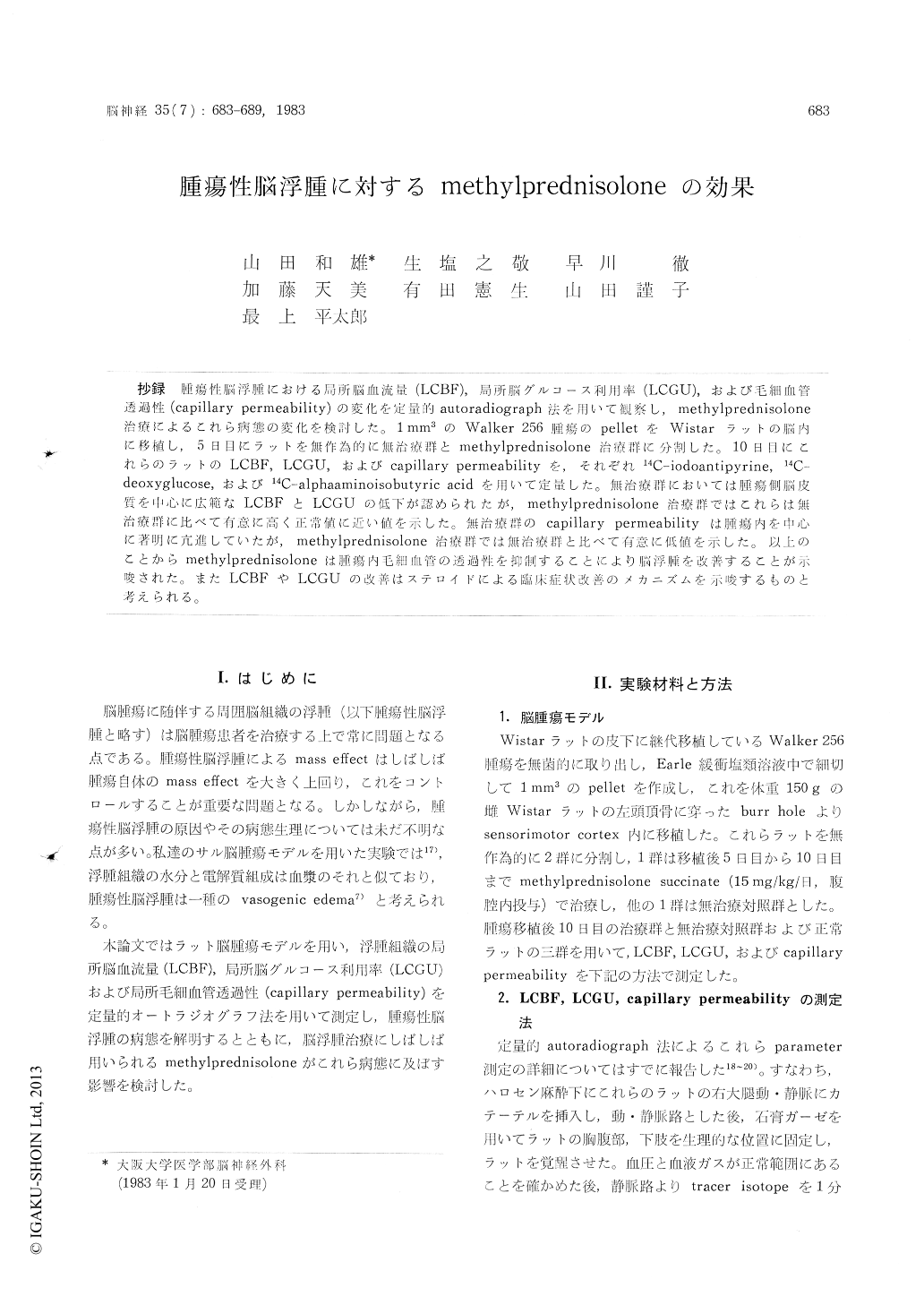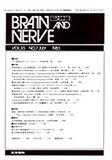Japanese
English
- 有料閲覧
- Abstract 文献概要
- 1ページ目 Look Inside
抄録 腫瘍性脳浮腫における局所脳血流量(LCBF),局所脳グルコース利用率(LCGU),および毛細血管透過性(capillary permeabiiity)の変化を定量的autoradiograph法を川いて観察し, methylprednisolone治療によるこれら病態の変化を検討した。1mm3のWalker 256腫瘍のpeiletをWistarラットの脳内に移植し,5日目にラットを無作為的に無治療群とmethyiprednisoione治療群に分割した。10日目にこれらのラットのLCBF, LCGU,およびcapiiiary permeabilityを,それぞれ14C-iodoantipyrine,14C—deoxyglucose,および14C-alphaaminoisobutyric acidを用いて定量した。無治療群においては腫瘍側脳皮質を中心に広範なLCBFとLCGUの低下が認められたが, methylprednisolone治療群ではこれらは無治療群に比べて有意に高く正常値に近い値を示した。無治療群のcapiilary permeabilityは腫瘍内を中心に著明に亢進していたが,methylprednisolone治療群では無治療群と比べて有意に低値を示した。以上のことからmethylprednisoioneは腫瘍内毛細血管の透過性を抑制することにより脳浮腫を改善することが示唆された。またLCBFやLCGUの改善はステロイドによる臨床症状改善のメカニズムを示唆するものと考えられる。
Local cerebral blood flow (LCBF), local cerebral glucose utilization (LCGU) and capillary per-meability were studied in rats with tumor-induced brain edema. Moreover, effects of methylpredni-solone on these physiological parameters were studied to analize a possible role of steroid on treatment of peritumoral brain edema.
A cubic millimeter pellet of Walker 256 tumor was transplanted to the left sensorimotor cortex of the rat brain. Animals were randomly divided into two groups. One group was treated with methylprednisolone (15 mg/kg/day) for 5 days starting at 5 days after tumor inoculation, and the other group received no treatment. These rats were used for autoradiographic study at 10 days after tumor inoculation. Local CBF, LCGU and capillary permeability were measured with 14C-iodoantipyrine, 14C-deoxyglucose and 14C-alphaaminoisobutyric acid, respectively.
In the untreated group, LCBF and LCGU were widely depressed in the cortex and deep structures of the hemisphere ipsilateral to the tumor. Of the methylprednisolone treated animals LCBF and LCGU were significantly better than that of untreated animals. Capillary permeability of the untreated animals were highly increased in the viable part of the tumor. Some increase was also noted in the peripheral edge of the tumor and adjacent brain. In the methylprednisolone treated groups, capillary permeability was signifi-cantly lower than that in untreated group.
The data suggest that methylprednisolone decreases capillary permeability in the viable part of the tumor. The reduction of edema fluid formation may reduce peritumoral brain edema and may improve local cerebral blood flow and glucose metabolism. This may have relation to the clinical improvement of patients with peri-tumoral brain edema.

Copyright © 1983, Igaku-Shoin Ltd. All rights reserved.


